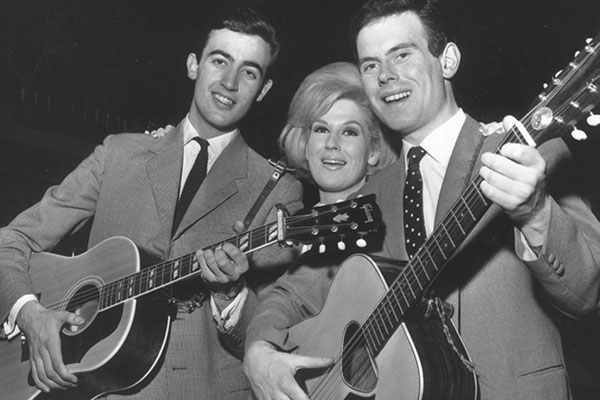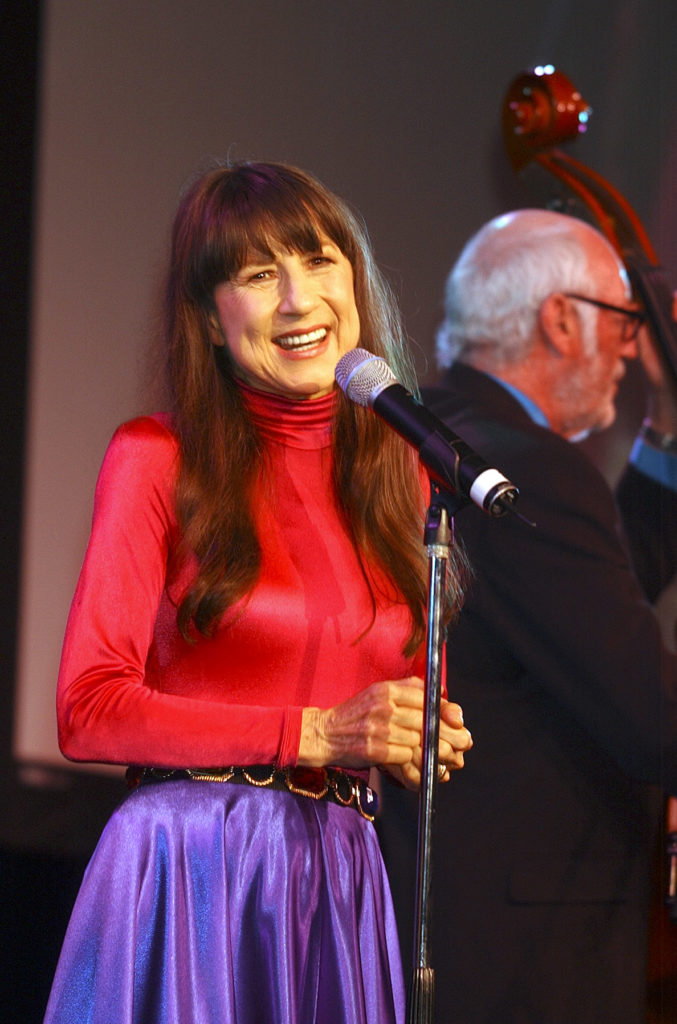 The Springfields — Mike, Dusty and Dion
The Springfields — Mike, Dusty and DionDionysius Patrick O'Brien (aka Tom Springfield) – singer, musician, songwriter, record producer
Dion O’Brien, born in London to parents from Kerry, was a leading light in the pop and folk world from the 1960s through to the end of the 1970s.
Along with his sister Mary Bernadette O’Brien and a friend Tim Field (later replaced by Mike Hurst), they formed a band called The Springfields.
Because his sister Mary was in the habit of playing football out in the streets with the boys, she became known as Dusty as a child. Later she achieved the accolade, bestowed only on a select few, who were referred to just by their first name. If you said ‘Dusty’, everyone knew who you meant.
Not so for her brother Dion — he would go on to carve out a phenomenally successful career in the music business, but few people would know his name.
Back in the days when National Service was compulsory, Dion O’Brien joined the army for his National Service (1952–54), and was assigned to the Joint Services School for Linguists in Coulsdon, Surrey.
This was to prove a fortuitous step for his later songwriting career.
The school trained conscripts in intelligence techniques, which included becoming familiar with Russian. This led O’Brien to the Samovar Song Book, and one song in particular, a Russian folksong from 1883 called Stenka Razin.
More than a decade later O’Brien used its melody as the basis of the song The Carnival is Over, a massive worldwide hit for the Australian band the Seekers.
 Judith Durham performing on stage with The Seekers (Photo by Peter Carrette Archive/Getty Images)
Judith Durham performing on stage with The Seekers (Photo by Peter Carrette Archive/Getty Images)But prior to this, the Springfields had been enjoying much success.
Five of the group's singles were UK Top 40 hits between 1961 and 1963. Island of Dreams", written and composed by Dion O’Brien, and Say I Won't Be There, the melody of which was adapted by him from the traditional French song Au clair de la lune, both reached no. 5 in the charts.
Uniquely for a British-based band in the pre-Beatles era, the Springfields were also successful in the US, particularly with their version of Silver Threads and Golden Needles which reached no. 20 on Billboard's Hot 100.
By 1963, with the changing face of pop and rock music, Mary O’Brien — by then the very famous Dusty Springfield and regarded by many as the greatest female vocalist to emerge on this side of the Atlantic, and who could be placed in the same company as Aretha Franklin or Gladys Knight— had decided to pursue a solo career.
Dion O’Brien career branched out in a different direction. He became record producer and songwriter for the Australian folk-pop group the Seekers. He wrote many of their major hits including their first UK number one, I'll Never Find Another You as well as Georgy Girl (which he co-wrote with Jim Dale), A World of Our Own, and the million-selling The Carnival Is Over.
After the Seekers split up, O’Brien and Diane Lampert co-wrote The Olive Tree, recorded by the group's singer, Judith Durham.
O’Brien also occasionally wrote theme music for television shows, but had more or less retired from the music business in the 1970s.
He kept a low profile thereafter, and died at the end of July in London aged 88. His death preceded Judith Durham’s by just ten days.

